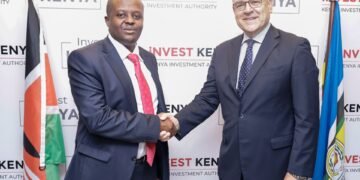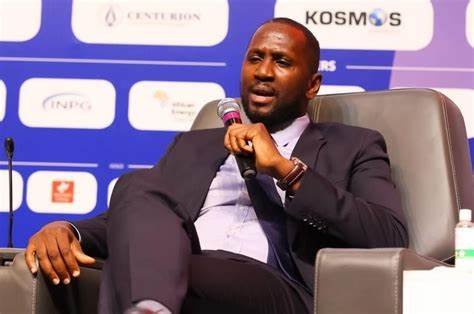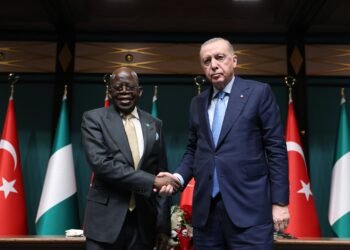In an exclusive interview with the African Energy Chamber monitored by Public Sector Global Magazine, Foday B. L. Mansaray, Director General of Sierra Leone’s Petroleum Directorate, spoke on the country’s exploration agenda to develop its hydrocarbon-rich, ultra-deep basins.
The interview focused on Sierra Leone’s latest oil and gas developments. These include a fifth licensing round launched last May, ongoing evaluation of its gas prospects, streamlined concession terms, and an upcoming wildcat and appraisal well to be drilled later this year.
What is the current state of Sierra Leone’s oil and gas industry?
We are still a nation in its infancy and we want to get to a stage where we can commercialize our oil and gas reserves. Over the past years, we have managed to streamline the process for application to conduct exploration works. So far, we have a Nigerian independent in our basin which – in its first evaluation conducted last year – has highlighted gas prospects. With the energy transition taking center stage, having gas in our energy mix will be crucial in driving energy security and sustainability.
Last year, Sierra Leone launched its fifth licensing round to kickstart new exploration in the country. How has engagement with operators been to date?
The licensing round closes at the end of September and has been an excellent round so far, with very strong interest from majors, IOCs and independents that have already looked at our data and are conducting data and financial evaluation. We have 56 graticules and 63,000 ㎢ in area on offer. We also have hydrocarbon-rich, ultra-deep basins on offer through direct negotiations. We want technically-sound companies to partner with – those that can drill and have the capability to progress our exploration agenda. Our entire basin is covered with 3D and 2D data, hence there is a strong foundation for companies to advance and fast-track exploration.
How does your latest licensing round differ from previous rounds and from others being launched across the continent?
We are determined to make this round the most successful licensing round we have ever had. The conversation around energy transition is shifting slightly, with major companies approaching us to participate. We have reduced the red tape for companies to come in with very simple and straightforward terms. We have only three non-negotiable terms: a corporate income tax of 25%; a 10% royalty for oil and 5% royalty for gas; and a petroleum resources tax. The barriers to entry are very low. The period from application to ratification is 85 days, hence we have heavily improved our application period. We are also positioned within the Office of the Presidency and are very quick and nimble at making decisions.
Sierra Leone’s basins are similar to Guyana’s where huge discoveries have been made, and we are positive that we will attract major IOCs and a few independents. Once we open our doors for them to enter, we expect more firms to flood into our sector. We are willing to learn from neighbors such as Namibia and Angola to enhance our sector growth.
How is Sierra Leone prioritizing local content and skills development as its energy sector develops?
Our local content laws are very strong and the area is a very important aspect regarding how we want to develop our industry. We have existing Memoranda of Understanding (MoU) with Equatorial Guinea, The Gambia and Ghana. Last year, we sent 18 people for training in Ghana from different departments. We want to capacitate local content into our sector and ensure that we have as many qualified Sierra Leoneans as possible wherever there is a gap. We also want to focus on African local content with our neighbors because local content is key to driving industry growth. We have many programs and training that we offer around petroleum engineering and geology.
How is Sierra Leone balancing the energy transition with its need for energy security?
Our plan is to not leave our oil and gas resources in the ground. A key part of industrialization is driving access to energy. We are aware of climate change, and as we develop our resources, we will make sure our sector is ready for future business models and low-carbon operations. Our resources are more useful in shaping the energy transition and economic development when they are on the surface than in the ground, hence we will continue with drilling, development and monetization of our resources.
How is the Petroleum Directorate serving to attract new investment?
We are very active in terms of attracting investments and promoting opportunities within Sierra Leone. We are not just waiting for investments to come to us – we are going where they are. We had very fruitful meetings and conversations with companies in Qatar around natural gas, and we will be chatting with two Italian IOCs. The industry is competitive and we need to be actively seeking investors.
What are the key investment opportunities within Sierra Leone’s energy value chain?
We have recently made a discovery with a small-to-medium upstream company and are looking for companies willing to develop that to meet our in-country energy needs. We have also signed an MoU for the development of the Nigeria-Morocco-Niger Gas Pipeline for us to tap into – as well as feed into – that pipeline to meet our demands. In the downstream sector, we are ensuring fuel security with the development of more pipes to import more fuels. The key area that will give us energy independence is exploration.
With the 2023 edition of African Energy Week being held this October, what message will you be sharing during the event and what deals do you hope to be signed?
We are closing the licensing round around the time of African Energy Week (AEW) and we plan to sign the agreements during the event. We are currently speaking to one supermajor and we want AEW to be the platform where we make a huge announcement. With the Nigerian company that is already in the basin, it will start drilling a wildcat and appraisal well later this year, so we also plan to announce the size and scope of its discovery at AEW.






























































